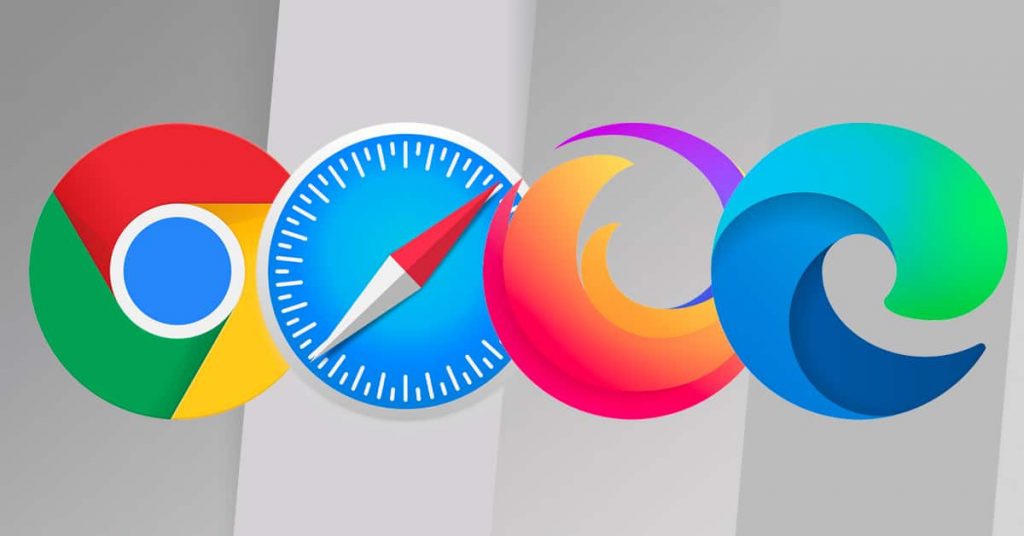
Introduction
The internet is a vast and wonderful place, but it also comes with many risks and threats to your privacy. Online marketers, advertisers, hackers, and even governments can track your online activities, collect your data, and use it for various purposes. Some of these purposes, such as showing you relevant ads or improving your user experience, may be harmless. However, some browsers can cause you harm in various ways.
Your web browser is one of the most essential tools you use to access the internet, it is the software that allows you to view web pages, search for information, watch videos, play games, and more. However, not all browsers are created equal when protecting your online privacy. Some browsers have more features and settings that allow you to control how much data you share with websites and third parties, while others have less or none.
This article will compare the privacy strengths and weaknesses of four popular browsers: Mozilla Firefox, Google Chrome, Apple Safari, and Microsoft Edge. We will also explain why Mozilla Firefox is the better option for those people seeking a more private online search. We will discuss the Tor browser in another blog post.
Comparison of Browsers
• Pros: Open-source, customizable, strong tracking protection, private browsing mode, encrypted DNS, password manager, VPN service
• Cons: Unique fingerprint, slower than Chrome, fewer extensions
Google Chrome
• Pros: Fast, popular, secure, syncs across devices, many extensions, built-in translator
• Cons: Owned by Google, collects and shares user data, weak tracking protection, uses third-party cookies, no VPN service.
Apple Safari
• Pros: Default browser for Apple devices, fast, secure, blocks third-party cookies, prevents fingerprinting, private browsing mode, iCloud+ subscription offers VPN-like feature
• Cons: Only available for Apple devices, minimal settings, some gaps in tracking protection, fewer extensions, no password manager.
Microsoft Edge
• Pros: Default browser for Windows devices, fast, secure, syncs across devices, blocks third-party trackers, private browsing mode, password manager, built-in translator
• Cons: Owned by Microsoft, collects and shares user data, weak tracking protection, uses third-party cookies, no VPN service.
Why Mozilla Firefox is the Best Option
Based on the comparison above, we suggest that Mozilla Firefox offers the most features and settings that enhance online privacy. Firefox is an open-source browser, meaning anyone can inspect its code and verify that it contains no hidden or malicious functions. Firefox also allows you to customize your browser with various add-ons and preferences that suit your needs and tastes. Firefox has a vital tracking protection feature that blocks ads, trackers, and cookies from websites and third parties that may try to collect your data or follow you around the web. Firefox also has a private browsing mode that deletes your browsing history, cookies, and cache when you close the window. Firefox supports encrypted DNS, meaning that your domain name requests are protected from eavesdropping and tampering by anyone wanting to see what websites you visit. Firefox also has a password manager that securely stores and auto-fills your passwords for different websites. Finally, Firefox offers a VPN service called Mozilla VPN, which encrypts your internet traffic and hides your IP address from anyone wanting to track your location or identity.
The main drawback of Firefox is that it has a unique fingerprint, which means that your browser can be identified by its configuration and settings. This can make you more vulnerable to targeted ads or attacks. However, you can reduce your fingerprint by using Firefox’s anti-fingerprinting feature, which makes your browser look more like other browsers. Another drawback of Firefox is that it is slower than Chrome, the most widely used browser in the world. However, the speed difference is insignificant, and you may not notice it unless you have a slow internet connection or a low-end device. A third drawback of Firefox is that it has fewer extensions than Chrome, which means you may not find some of the tools or functions you need or want. However, Firefox has a large and diverse collection of extensions that can enhance your browsing experience and privacy.
In conclusion, Mozilla Firefox is the better browser for online privacy because it offers the most features and settings that allow you to control how much data you share with websites and third parties and how much they can track your online activities. Firefox is also an open-source and customizable browser that respects your freedom and choice. Firefox may have some drawbacks, such as a unique fingerprint, slower speed, and fewer extensions, but these can be mitigated or outweighed by its advantages. Therefore, we suggest using Mozilla Firefox as your web browser if you want a more private online experience.
Leave a Reply